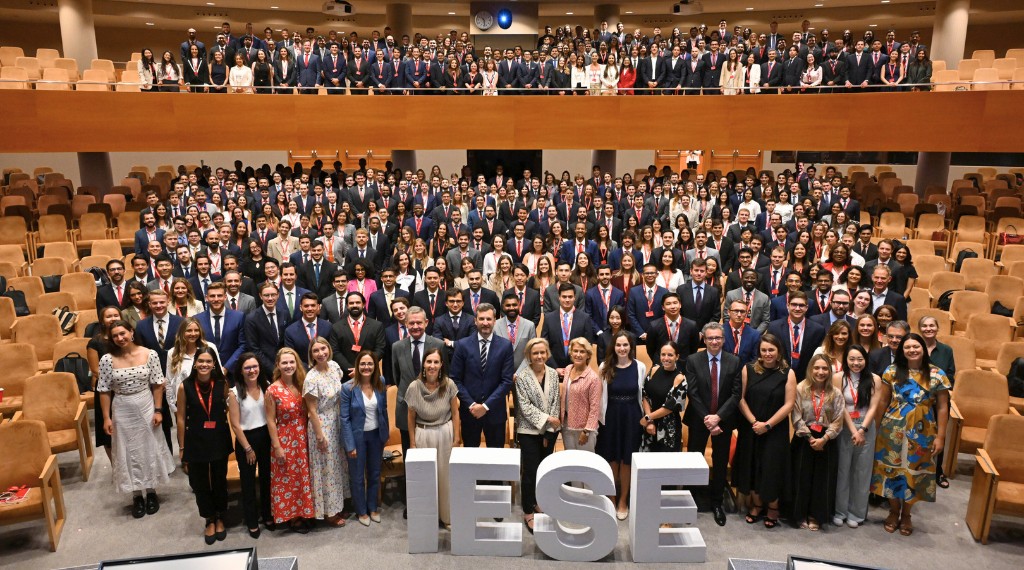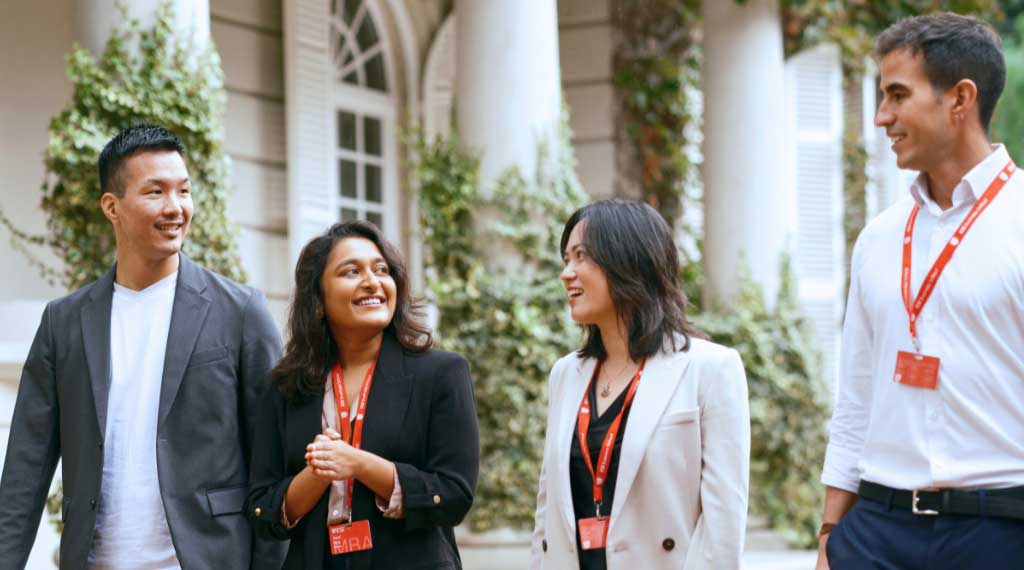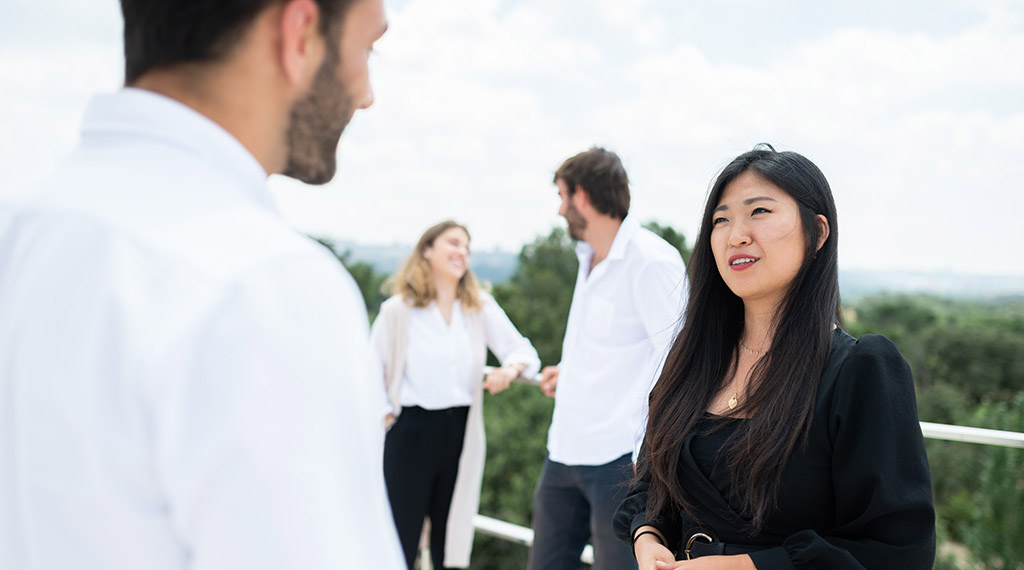Stories
Business schools across four continents join forces to shape the future of capitalism
12 leading business schools to take part in innovative MBA course initiated by IESE and Shizenkan University on social change
The Future of Capitalism MBA course was initiated in January 2021 by IESE and Japan’s Shizenkan University.
December 20, 2021

Twelve leading business schools from Brazil, Denmark, India, Indonesia, Japan, Malaysia, Mexico, Nigeria, South Korea, Spain and Switzerland will take part in an innovative MBA course that encourages students to critically examine today’s socio-economic system and provide a vision for how business can help promote a fairer and more equitable society.
The Future of Capitalism is a three-month-long MBA course initiated by IESE Dean Franz Heukamp and Prof. Tomo Noda, President at Japan’s Shizenkan University. It was first launched in January 2021 as a joint course among four schools (IESE, Shizenkan, the School of Inspired Leadership in India and Fundação Getulio Vargas in Brazil).
In order to scale the impact of the course, as well as provide a broader networking platform for students, eight new schools have joined for the second edition: Copenhagen Business School (Denmark), IMD (Switzerland), IPADE (Mexico), IPB University Business School (Indonesia), Lagos Business School (Nigeria), Seoul National University (South Korea), Tecnológico de Monterrey (Mexico) and Universiti Sains Malaysia (Malaysia).
Open to MBA students at all 12 participating schools, the 2022 edition of the Future of Capitalism starts in January 2022.
Students present plan for positive impact
The elective explores the key issues society faces within the capitalist system today, and invites students to reflect and come up with a plan on how business (and themselves as future business leaders) can have a more positive role in society. During the course, students engage in virtual conversations with a variety of guest speakers from around the world, including formerly homeless children and former child soldiers. They will also hear from top executives, entrepreneurs, policy makers, activists of various backgrounds, and academics, among others.
Some of the sessions include:
- Hearing from Tosha Maggy, Africa Business Coordinator of Terra Renaissance, a Japanese NGO that offers vocational training for former child soldiers in Uganda.
- A session with a forecaster, Paul Saffo, faculty and Futures Track Chair at Singularity University, on how to leverage technology and innovation for a better future.
- A dialogue with Shubhashish Roy, Founder and CEO of Ekmattra Society, a Bangladeshi NGO promoting the advancement of underprivileged children.
- Discussions with a founding member of the Conscious Capitalism movement, Raj Sisodia, Professor of Global Business at Babson College, on precepts and performance implications of pursuing a conscious approach to business.
- A session on sustainability with Mads Øvlisen, former CEO of Novo Nordisk and former Chairman of LEGO.
- A session discussing climate change and environmental sustainability with Jennifer Morgan, Executive Director of Greenpeace International.
Throughout, students collaborate in teams (both in mixed school teams and intra-school teams) to work on a mid-term and a final presentation, where they develop an outline of how business can build a bridge between the current status quo and their future vision of capitalism. Two finalist teams will then present their outputs to a group of prominent business leaders, including Paul Polman, B. Muthuraman, and Tak Niinami.


